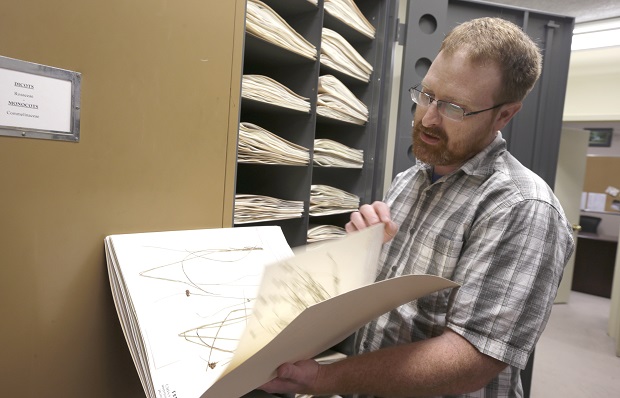Scientists warn plant knowledge lost as botany studies drop

In this May 11, 2015 photo, Theo Witsell, a botanist for the Arkansas Natural Heritage Commission, looks at examples of plants collected in the state at the commission offices in Little Rock, Arkansas. Since 1988, the number of research universities offering botany degrees has dropped by half, according to National Science Foundation research funding statistics. And the National Center for Education Statistics reports that fewer than 400 undergraduate, graduate and doctoral botany degrees were awarded in 2012. AP
MOUNT IDA, Arkansas, United States — Scientists are warning that the plant world could become a virtual mystery in the coming decades as college students increasingly shy away from studying botany and universities across the U.S. shutter their long-standing collections of plant species.
Since 1988, the number of research universities offering botany degrees has dropped by half, according to National Science Foundation research funding statistics. The National Center for Education Statistics reports that fewer than 400 undergraduate, graduate and doctoral botany degrees were awarded in 2012. Educators say that’s because students are being pushed into more modern, technology-related majors.
Botanists fear that will lead to a shortage of people able to teach about, identify and use plants, which could harm conservation efforts and even the ability to develop alternate fuels and important medicines.
At the same time, universities and states facing budget cuts are closing herbaria, or collections of plant species that botanists can reference or use for genetic material.
“We aren’t going to understand what we have in the world. By some estimates, only 20 percent of the (plant and animal) species in the world have been identified,” said Joe Miller, a program officer at the National Science Foundation’s Division of Environmental Biology.
Researchers acknowledge the bulky collections of plant specimens that are mounted, dried, dated and tagged with pivotal information can be hard to maintain. They require temperature and moisture control and space for the preparation process.